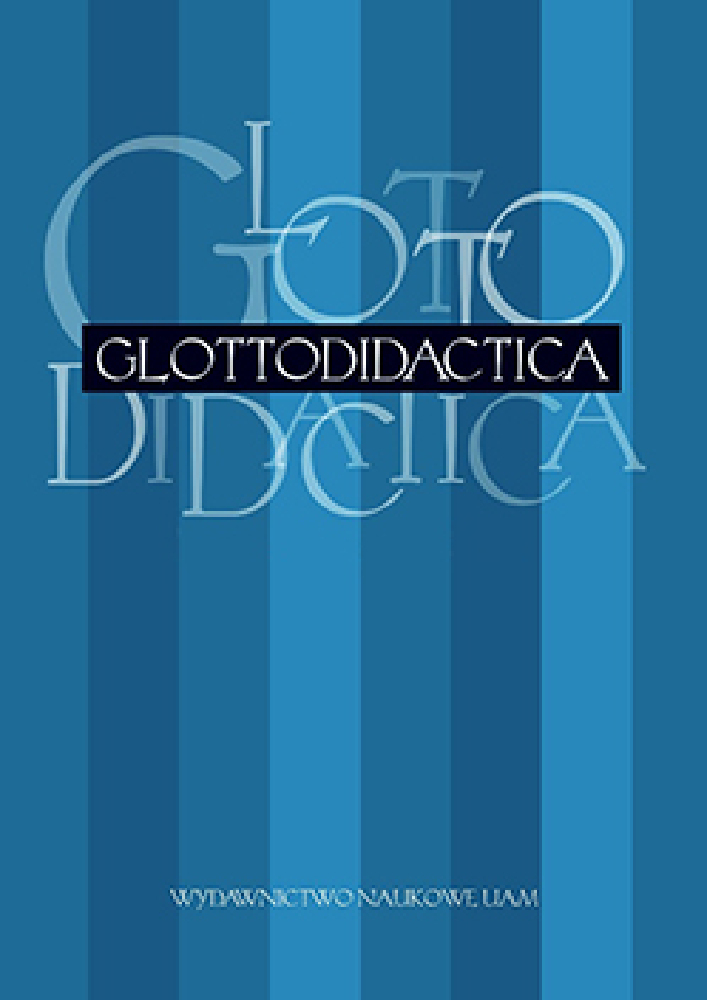Abstract
The paper analyses the ways in which the terms processes and strategies are defined within literature reporting verbal protocols on reading. The main argument presented concerns the fact that distinguishing between the two terms in not always based on the same criteria.References
Block, E., 1986. The comprehension strategies of second language readers. In: TESOL Quarterly 20/3, 463–494.
Bråten, I. / Strømsø, H.I., 2003. A longitudinal think-aloud study of spontaneous strategic processing during the reading of multiple expository texts. In: Reading and Writing: An Interdisciplinary Journal 16/3, 195–218.
Cohen, A.D. / Upton, T.A., 2007. ‘I want to go back to the text’: response strategies on the reading subtest of the new TOEFL. In: Language Testing 24/2, 209–250.
Davis, J.N. / Bistodeau, L., 1993. How do L1 and L2 reading differ? Evidence from think aloud protocols. In: The Modern Language Journal 77/4, 459–472.
Ellis, R., 1990. Understanding second language acquisition. Oxford: Oxford University Press.
Ericsson, K.A. / Simon, H.A., 1993. Protocol analysis. Verbal reports as data. Cambridge, MA: MIT Press.
Green, A. 2009., Verbal protocol analysis in language testing research. New York: Cambridge University Press.
Jiménez, R.T. / García, G.E. / Pearson, P.D., 1996. The reading strategies of bilingual Latina/o students who are successful English readers: opportunities and obstacles. In: Reading Research Quarterly 31/1, 90–112.
Kendeou, P. / Muis, K.R. / Fulton, S., 2011. Reader and text factors in reading comprehension processes. In: Journal of Research in Reading 34, 1–19.
Kletzien, S.B., 1991. Strategy use by good and poor comprehenders reading expository text of differing levels. In: Reading Research Quarterly 26/1, 67–86.
Lau, K.L., 2006. Reading strategy use between Chinese good and poor readers: a think-aloud study. In: Journal of Research in Reading 29/4, 383–399.
Newell, A. / Simon, H.A., 1972. Human problem solving. Englewood Cliffs, NJ: Prentice-Hall.
Olshavsky, J.E., 1976–77. Reading as problem solving: an investigation of strategies. In: Reading Research Quarterly 12/4, 654–674.
Phakiti, A., 2003. A closer look at the relationship of cognitive and metacognitive strategy use to EFL reading achievement test performance. In: Language Testing 20/1, 26–56.
Phakiti, A., 2008. Construct validation of Bachman and Palmer’s (1996) strategic competence model over time in EFL reading tests. In: Language Testing 25 /2, 237–272.
Pressley, M. / Hilden, K., 2004. Verbal protocols of reading. In: Duke, N.K. / Mallette, M.H. (eds.), Literary research methodologies. New York: The Guilford Press, 308–321.
Scott, D.B. 2008. Assessing text processing: a comparison of four methods. In: Journal of Literacy Research 40/3, 290–316.
Yau, J.C. 2005., Two Mandarin readers in Taiwan: characteristics of children with higher and lower reading proficiency levels. In: Journal of Research in Reading 28/2, 108–124.
License
Authors
Authors of texts accepted for publication in Glottodidactica are required to complete, sign and return to the Editorial team’s office the Agreement for granting a royalty-free license to works with a commitment to grant a CC sub-license.
Under the agreement, the authors of the texts published in Glottodidactica grant Adam Mickiewicz University in Poznań a non-exclusive, royalty-free license and authorize the use of Attribution-NoDerivatives 4.0 International (CC BY-ND 4.0) Creative Commons sub-license.
The authors retain the right to the free disposal of the work.
Users
Interested Internet users are entitled to use works that have been published in Glottodidactica since 2016, under the following conditions:
▪ attribution – obligation to provide, together with the distributed work, information about the authorship, title, source (link to the original work, DOI) and the license itself.
▪ no derivatives – the work must be preserved in its original form. Without the author's consent, it is not possible to distribute the modified work in the form of translations, publications, etc.
Copyrights are reserved for all texts published before 2016.
Miscellaneous
Adam Mickiewicz University in Poznań retains the property right as a whole (layout, graphic form, title, cover design, logo etc.).
Privacy statement
The names and email addresses published on this journal site will be used exclusively for the purposes declared by this journal and cannot be used for any other purpose or by any other party.




